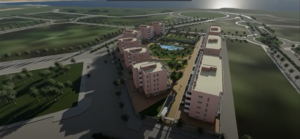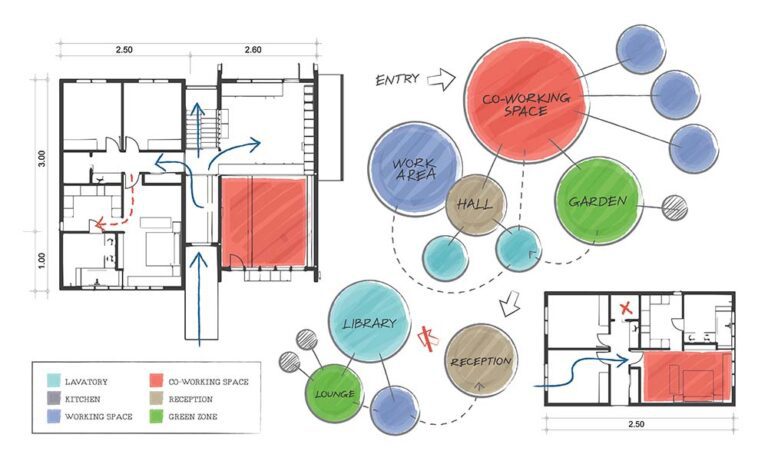

Rustic agricultural farms are land or properties located in rural areas and intended mainly for the practice of agricultural, livestock or forestry activities. These farms can be used for the cultivation of fruits, vegetables, cereals, fodder and other agricultural products, the raising of farm animals or forest exploitation.
Rustic agricultural farms are usually owned by farmers, ranchers, agricultural entrepreneurs or investors interested in the production of food or agricultural products. These properties can be of different sizes and configurations, from small farm plots to large tracts of land with different agricultural uses.
In some jurisdictions, rural farms may be subject to specific regulations, such as restrictions on the type of crops allowed, the use of fertilizers and pesticides, or the protection of conservation areas or fragile ecosystems. In addition, they may be subject to requirements for obtaining permits and licenses for the construction of agricultural facilities, such as stables, silos, warehouses or irrigation systems.

Rustic farms with solar panels are land or properties located in rural areas that have facilities for the generation of electricity through solar panels. These rustic farms can be used for the production of renewable and sustainable energy, and can be used for different uses, such as the sale of electricity to the electricity distribution network, self-consumption of electricity on the farm, or a combination of both.
Rustic farms with solar panels can be owned by companies or individuals interested in the production of solar energy, and can be connected to the electricity grid or be autonomous systems, depending on their production capacity and their geographical location.
In some jurisdictions, rustic farms with solar panels may be subject to specific regulations, such as licensing and permit requirements for the construction of solar installations, compliance with safety and quality standards in the installation and maintenance of solar panels, or the establishment of tariffs for the sale of electrical energy to the electrical distribution network.
We are dedicated to the registration of all documents and permits necessary for the purchase and use of land.
We find the best land available and in suitable places to work.
When choosing the direction of Solar Panels, we will help you find suitable land and draw up the necessary documents to organize a business.
We can find companies that can install and maintain solar panels, as well as find a market for electricity.

Residential urban parcels are land or plots of land located in urban areas that are intended for housing construction, that is, they are land that is designed for residential use.
Different types of homes can be built on these parcels, such as single-family homes, apartment buildings, condominiums, among others. Residential plots are usually located in urbanized areas and with access to basic services, such as drinking water, electricity, sewerage, public transport and green spaces.
In some jurisdictions, residential urban parcels may be subject to specific regulations, such as restrictions on the type of construction allowed, the maximum height of buildings, or the percentage of land occupancy. In addition, municipal authorities usually establish requirements for obtaining construction permits and for compliance with safety and quality standards in the construction of buildings.

Urban parcels refer to land or plots of land that are located within an urban area, that is, in an area developed and intended for the construction of buildings and the establishment of urban activities.
On the other hand, urbanization refers to the set of works and services that are carried out to adapt a piece of land or area to the needs of urban life, such as the construction of streets, sidewalks, sewage systems, drinking water, electricity, among others. In short, an urban plot is part of an urbanization, and urbanization is the process of developing an area to turn it into an urban area suitable for life and the development of human activities.

Urban vacation plots are land or plots of land that are located in urban areas intended for the construction of homes or buildings for vacation use. That is, they are land located in urban or semi-urban areas that are not intended primarily for permanent residence, but for temporary use during vacations or rest periods.
In general, these plots are located in areas close to beaches, mountains, lakes or rivers, or in tourist and recreational areas, and can be used to build summer houses, cabins, villas, chalets or other buildings for temporary use.
In some jurisdictions, urban vacation parcels may be subject to specific regulations, such as restrictions on the type of construction allowed or the maximum time of occupancy by owners or visitors.

Permanent urban parcels are land or plots of land located in urban areas that are intended mainly for the construction of homes or buildings for permanent use, that is, for the habitual residence of their owners.
In general, these plots are located in urbanized areas that have basic services such as water, electricity, sewerage, and public transportation, among others, and can be used to build houses, apartments, apartment buildings, or other types of buildings intended for housing. permanent residence of its inhabitants.
In some jurisdictions, permanent urban parcels may be subject to specific regulations, such as restrictions on the type of construction allowed, the maximum height of buildings, or the percentage of land occupancy. In addition, municipal authorities usually establish requirements for obtaining construction permits and for compliance with safety and quality standards in the construction of buildings.

Industrial urban parcels are land or plots of land located in urban areas that are primarily intended for the construction and operation of industrial facilities. These plots can be used for the construction of factories, warehouses, workshops, production plants, among other types of industrial facilities.
Different types of industrial activities can be carried out on these plots, such as the production of manufactured goods, the transformation of raw materials into finished products, logistics and distribution of merchandise, among others.
Industrial urban plots are usually located in areas with easy access to the main transportation routes and basic services, such as drinking water, electricity, sewerage, among others. In addition, they can have specialized infrastructures and services, such as loading and unloading areas, logistics platforms, business parks, among others.
In some jurisdictions, industrial urban parcels may be subject to specific regulations, such as restrictions on the type of activities permitted, the maximum height of buildings, or the percentage of land occupancy. In addition, municipal authorities usually establish requirements for obtaining construction permits and for compliance with safety and quality standards in the construction and operation of industrial facilities.

Tertiary urban plots are land or plots of land located in urban areas that are mainly intended for the construction and operation of tertiary service facilities or the service sector. These plots can be used for the construction of office buildings, shopping centers, hotels, hospitals, among other types of service facilities.
Different types of commercial activities and services can be developed in these plots, such as the provision of financial services, consulting services, health services, tourist services, among others.
Tertiary urban plots are usually located in areas of high population density and accessibility through public and private transport. In addition, they can have specialized infrastructures and services, such as parking lots, convention centers, leisure areas, among others.
In some jurisdictions, tertiary urban parcels may be subject to specific regulations, such as restrictions on the type of activities allowed, the maximum height of buildings, the percentage of land occupation and the need for specific permits and authorizations. In addition, municipal authorities usually establish requirements for compliance with safety and quality standards in the construction and operation of tertiary facilities.

Write us, call or make an appointment! We will select the best options for you and your business

With more than 30 years of experience, we have established processes that allow us to interact with various clients, providing the most successful result
Copyright © 2023 EM2Projects
created by VS WebDev